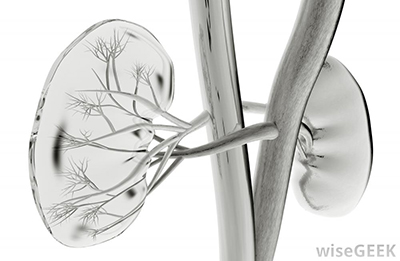
Source: www.wisegeek.com
As a medical officer working in a clinic, oftentimes I face this situation. This kind of scenario is not unfamiliar to us, meeting patients especially those who have chronic/non-communicable diseases.
Chronic/Non-communicable disease patients
Commonly, these patients suffer from 3 main diseases:
- Hypertension/High blood pressure
- Diabetes
- High cholesterol/hypercholesterolemia
These three diseases have a high percentage of occurrence in this country.
- Hypertension (43.5% – age above 30)
- Diabetes (21%)
- Overweight and obesity (44%)
What actually endangers the patients is the silent killer i.e: the long term effect of uncontrolled illness. They hold the risk of having strokes, heart and kidney diseases.
Non-communicable diseases and complications
When the body is confronted with chronic diseases, the blood vessels will thicken and the arteries will tend to clog. When it is clogged, it will obstruct blood flow to essential organs of the body such as the brain, heart, kidneys and nerves.
Doctors will prescribe medications to patients so that the physiological functions will return to normal. Thus, risks of complications such as stroke, heart attack and kidney failure will diminish.
Medications as the cause of kidney damage?
Before any medicine is sold on the market, many tests are done to ensure the quality and safety of the medicine. Many guidelines have to be referred to and adhered by medical professionals depending on the illness and its medication.
These tests and guidelines are controlled by various agencies and professional associations around the globe.
Apart from that, the patient will undergo blood tests and other clinical tests to gauge their health and monitor the development of the internal organs. This is done with the intention of observing and conserving the organs.
However, there are some medications that can damage the kidneys. Usually these medications are taken by the patients without their doctors knowing it. The usual suspects are pain killers (NSAIDs) in vast quantities, traditional preparations, herbs and alternative medicine that may have additives or contain kidney-damaging compounds. The common scenario is the patient takes medications without informing the doctors or chronic patients changing doctors without proper observations.
Can medicine alone prevent complications?
Actually, a healthy lifestyle is the most important factor. A healthy eating habit is critical to ensure one’s health.
Recommended meals for hypertensive patients should be low in salt. Daily salt intake should be limited to 1 ¼ teaspoon per day. Avoid preserved fruits or food, soy sauce, tomato ketchup and chili sauce.
Diabetic patients need to cut down their sugar intake. Not totally crossing out rice from the menu. Rather, eat in small but frequent portions. Make sure there eat breakfast (8am), brunch (10am), lunch (1pm), tea time (4pm), dinner (7pm) and supper (10pm).
Fill the plate, half with vegetables, quarter with protein dishes, and another quarter with rice. Avoid sweet drinks like premixed coffee and drink plenty of plain water. For patients with high cholesterol, avoid fried and oily foods. Have more soups and roasted or steamed meals.
Exercise is recommended, every other day, for 30 minutes. Activities include brisk walking, cycling, badminton and doing loads of manual laundry.
So, how to make sure our kidneys are fine?
Easy. Take the prescribed medicines, follow professional advice, take blood tests when necessary, lead a healthy lifestyle and don’t skip appointments.
Dr. Aneesa is a future Family Medicine Specialist and medical lecturer at Universiti Putra Malaysia. She regards patient education as very important. She is also active in volunteerism and community programs. This article was translated by Azizul Ismie from https://www.mmgazette.com/nanti-buah-pinggang-saya-rosak-dr-aneesa/
Reference:
- CPG DM, CPG HPT, NHMS 2011
[This article belongs to The Malaysian Medical Gazette. Any republication (online or offline) without written permission from The Malaysian Medical Gazette is prohibited.]
